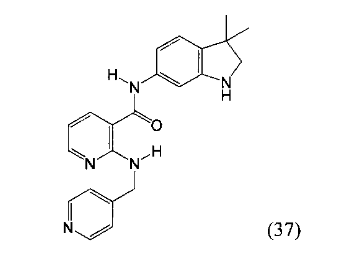Ramucirumab

Cyramza is injected into a vein through an IV. A healthcare provider will give you this injection. You may be given medication to prevent certain side effects while you are receiving Cyramza. Cyramza is sometimes given once every 2 weeks. It may also be given in a 21-day treatment cycle and you may only need to use the medicine during the first day of each cycle. Follow your doctor's dosing instructions very carefully. While using Cyramza, you may need frequent blood or urine tests. Your blood pressure will need to be checked often. If you need surgery, tell the surgeon ahead of time that you are using Cyramza. You may need to stop using the medicine for a short time.
CYRAMZA™ is a monoclonal antibody, Vascular Endothelial Growth Factor Receptor 2 (VEGFR2) Inhibitor. Cyramza works by blocking the blood supply that fuels tumor growth. The drug is intended for patients whose tumor has grown during or following treatment with platinum-based chemotherapy, and it is to be used in combination with docetaxel, another type of chemotherapy.
Common Cyramza side effects may include: feeling weak or tired; diarrhea; nosebleeds; low white blood cell counts; or high blood pressure.
Get emergency medical help if you have signs of an allergic reaction to Cyramza: hives; difficult breathing; swelling of your face, lips, tongue, or throat.
Some side effects may occur during the injection. Tell your caregiver right away if you feel light-headed, chilled, sweaty, or have chest pain, chest tightness, back pain, trouble breathing, or numbness and tingling. Cyramza can increase your risk of serious bleeding.
Call your doctor at once if you have: any wound that will not heal; headache, confusion, change in mental status, vision loss, seizure (convulsions); severe or ongoing stomach pain, vomiting, or diarrhea; a light-headed feeling, like you might pass out; low white blood cell counts - fever, swollen gums, painful mouth sores, pain when swallowing, skin sores, cold or flu symptoms, cough, trouble breathing; dangerously high blood pressure - severe headache, blurred vision, buzzing in your ears, anxiety, shortness of breath, uneven heartbeats; kidney problems - puffy eyes, swelling in your ankles or feet, weight gain, urine that looks foamy; signs of stomach bleeding - severe stomach pain, bloody or tarry stools, coughing up blood or vomit that looks like coffee grounds; symptoms of a blood clot - sudden numbness or weakness (especially on one side of the body), sudden severe headache, slurred speech, problems with vision or balance; or heart attack symptoms - chest pain or pressure, pain spreading to your jaw or shoulder, nausea, sweating.
